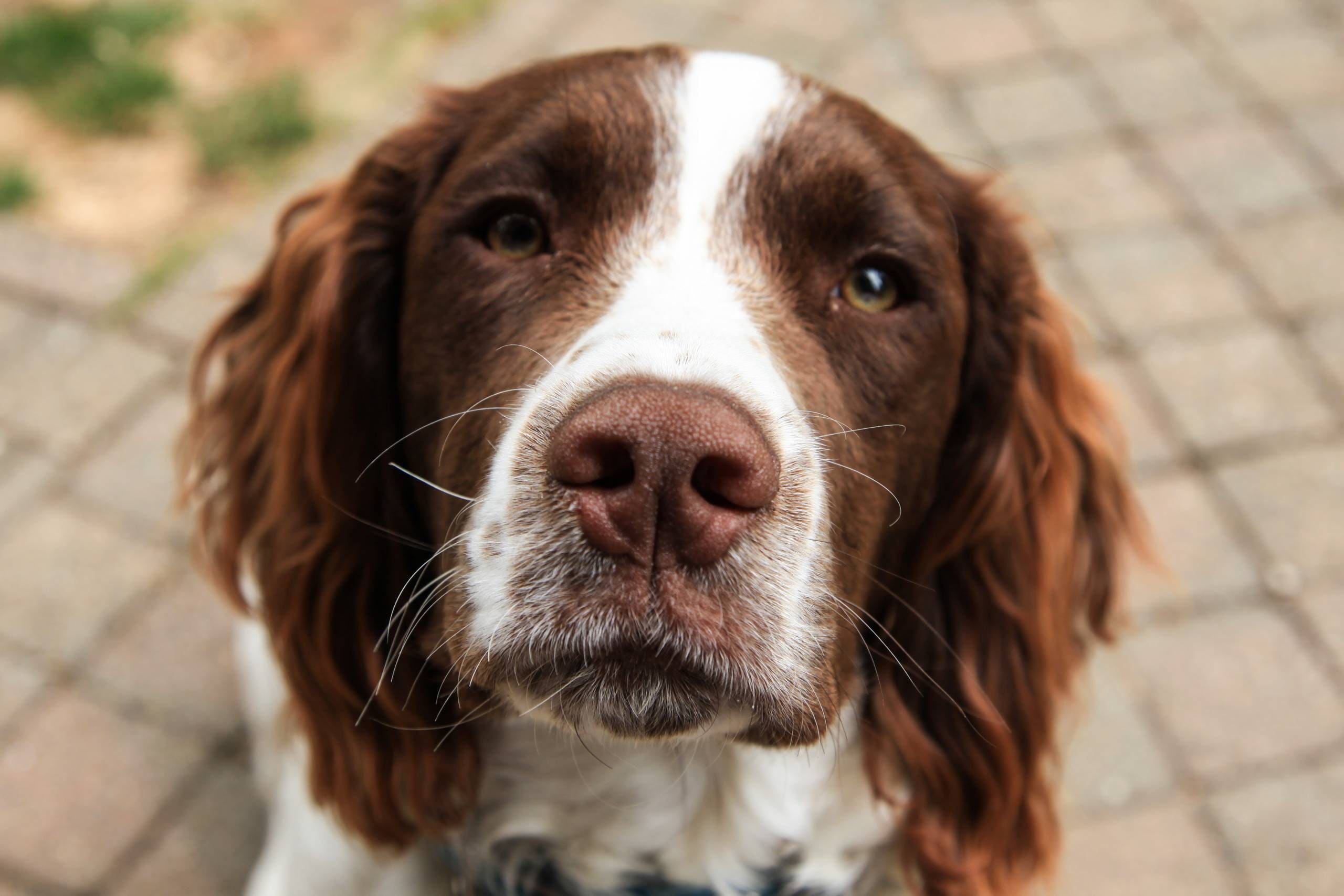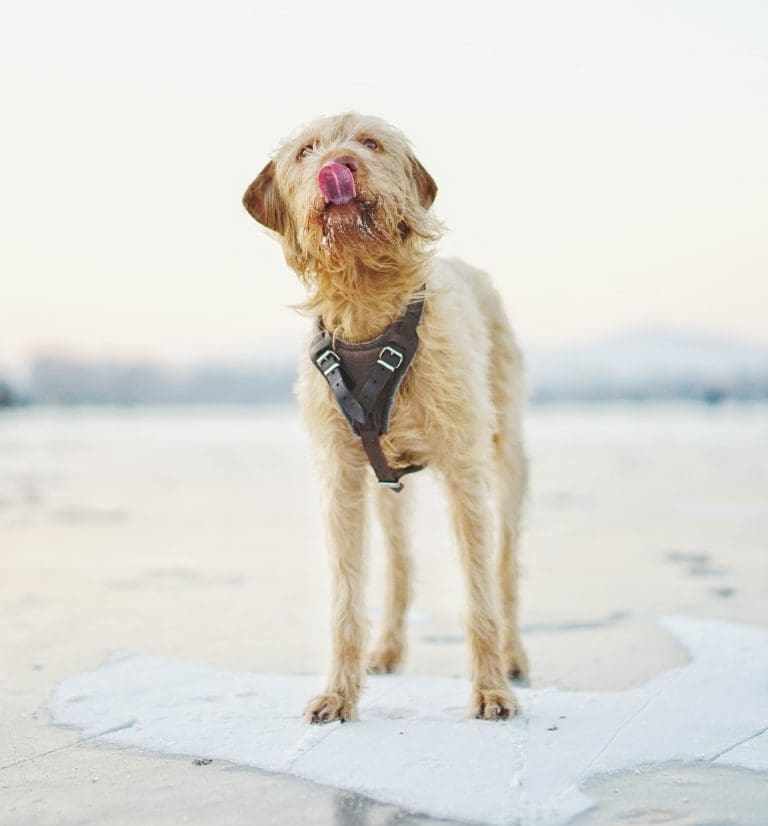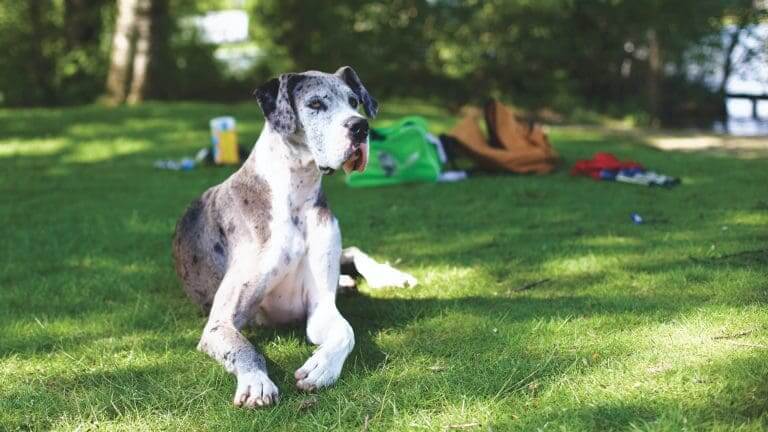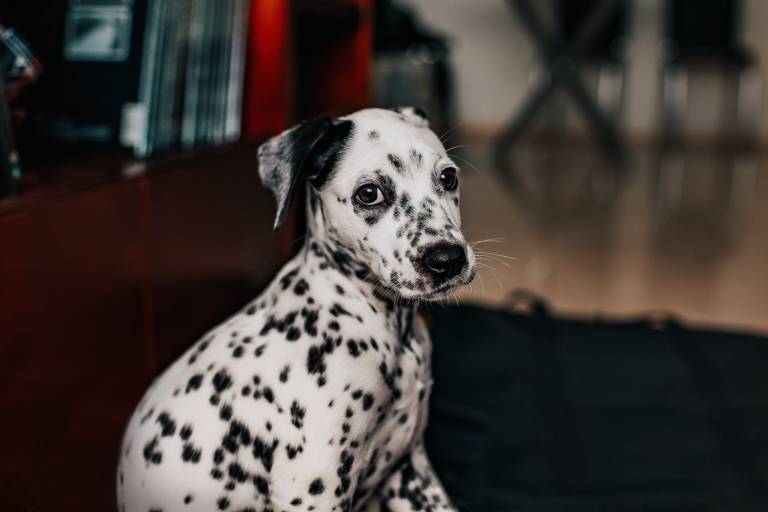Why Does My Dog Eat My Underwear?
Post Date:
December 10, 2024
(Date Last Modified: November 13, 2025)
Dogs sometimes pick up and eat items of clothing, including underwear, for a variety of sensory, developmental, behavioral, emotional, and medical reasons. Understanding the range of possible causes helps owners choose prevention and treatment steps that fit the specific dog and situation.
Key Reasons Dogs Eat Underwear — A concise map of the main explanations for the behavior
- Scent and texture attraction
- Developmental mouthing and teething
- Behavioral reinforcement and play
- Emotional stress, separation anxiety, or pica
- Underlying medical or nutritional problems
Because multiple factors often overlap, a multi-cause approach is needed: for example, a teething puppy with easy access to laundry can develop a learned theft routine that becomes stress-driven later, and foreign-body ingestion can escalate from casual chewing to a surgical emergency in some cases; clinical sources indicate surgery is required in roughly 30–50 percent of canine gastrointestinal foreign‑body presentations depending on object type and timing of presentation[1].
Scent, Texture, and Attraction to Clothing
Human scent is a potent attractant for many dogs because clothing holds sweat, skin oils, and pheromonal cues that are reassuring or interesting to a dog. Fabrics that are soft, stretchy, or fibrous can feel satisfying to chew and are easier to shred and swallow than rigid items. Lingering food odors trapped in pockets or on fabric can further increase interest, especially for dogs with strong food drive or scavenging tendencies. Underwear often differs from other household objects because it tends to be small, pliable, highly scented, and readily available in places where dogs spend time, which makes it both tempting and easy to transport.
Developmental Causes: Puppies and Teething
Puppies explore with their mouths as a normal developmental behavior, and teething adds chewing motivation as deciduous teeth are replaced by adult teeth; deciduous teeth typically begin to erupt when puppies are about 3 to 4 weeks old and permanent teeth are usually in place by around 4 to 6 months of age[2].
Exploratory mouthing is distinguished from problematic ingestion by frequency and consequence: an occasional mouthing or light chewing that stops when redirected is different from repetitive theft, persistent swallowing of fabric, or signs of gastrointestinal upset. Safe chew alternatives that are appropriate for the puppy’s size and chewing strength can reduce the risk of ingestion by offering acceptable oral outlets and preventing fabric from becoming the default option.
Behavioral Triggers: Attention-Seeking and Play
Dogs quickly learn cause-and-effect. If stealing laundry prompts an excited chase, loud reaction, or lengthy interaction, the dog may interpret those responses as rewarding attention and repeat the behavior. Play patterns such as keep-away or fetch that involve running and tugging with small items can unintentionally reinforce theft and guarding of clothing. Boredom and insufficient exercise are common contributors; most adult dogs benefit from a structured amount of physical activity and mental engagement each day, commonly recommended at roughly 30 to 120 minutes of combined exercise and enrichment depending on breed and age[3].
Emotional Causes: Stress, Separation Anxiety, and Pica
Stress-related chewing can resemble normal play at first but typically escalates to repetitive, focused actions that reduce anxiety for the dog. Signs that chewing is stress-related include pacing, vocalizing when the owner prepares to leave, destruction that occurs primarily when the owner is absent, or obsessive focus on specific items tied to the owner’s scent. Pica is defined as eating non-food items and may present as persistent ingestion of cloth, paper, or other non-nutritive materials; when pica is suspected, the behavior is often daily or frequent and not responsive to routine redirection.
Environmental triggers that commonly precipitate stress-driven chewing include changes in routine, recent household disruptions, prolonged confinement without enrichment, or inconsistent management of tempting items.
Medical and Nutritional Causes to Rule Out
Some medical and nutritional issues can prompt pica-like behavior or increase scavenging risk; veterinarians frequently include a basic panel of 3 to 4 initial diagnostic assessments such as a complete blood count, serum biochemistry, fecal parasite test, and abdominal imaging when investigating abnormal ingestion or pica[4].
Conditions that might present with abnormal eating include gastrointestinal disease, endocrine disorders (for example, conditions that alter appetite), chronic malabsorption, and parasitism. A full history, diet review, and targeted tests help separate behavioral pica from an underlying medical driver so that treatment addresses the root cause rather than only the symptom.
Health Risks of Swallowed Underwear
Swallowed fabric can cause acute choking, partial or complete intestinal obstruction, and, in severe cases, perforation of the gastrointestinal tract. Emergency signs to watch for include repeated vomiting, obvious abdominal pain or distension, weakness or marked lethargy, and absence of bowel movements for 24 to 48 hours, any of which should prompt immediate veterinary evaluation[5].
Veterinary treatment varies with object size, location, and clinical signs; options range from monitoring and medical management to endoscopic retrieval or exploratory surgery. Early presentation improves the likelihood that a minimally invasive approach will work and reduces the risk of complications.
Practical Prevention: Houseproofing and Storage
Environmental control is the most effective first-line prevention. Keep laundry in secure, closed hampers or cabinets and avoid leaving clothing on beds, chairs, or floors where a curious dog can access it. Consider closed doors for bedrooms or laundry rooms when unsupervised, and use elevated or locked containers for dirty or scented garments to remove the immediate source of temptation.
Laundry management strategies that reduce attraction include immediate containment of worn garments, washing items promptly if they have strong food or body odors, and using sealed dispensers for transport between rooms. Consistent household rules and predictable routines reduce the chance that opportunistic theft becomes habitual.
Training Solutions: Teach Alternatives and Redirection
Training that replaces the unwanted behavior with a safe alternative is durable and humane. Teach reliable “leave it” and “drop it” cues with positive reinforcement so the dog learns to release or ignore tempting items on cue. Pair commands with rewards that are distinctly better than the object in the dog’s mouth so the dog accepts exchanges readily.
Provide durable, supervised chews and rotating enrichment toys to keep interest high. Short training sessions, puzzle feeders, scent games, and structured play can meet both mental and physical needs that underlie theft. If the dog resists basic cues or the behavior is entrenched, seek help from a certified professional trainer or veterinary behaviorist who uses force-free methods and can design a stepwise recovery plan.
When to See a Vet
Seek immediate veterinary attention for any dog that shows signs of obstruction such as repeated vomiting, inability to keep down water, severe abdominal pain, or collapse. For non-urgent but concerning patterns—repeated swallowing of non-food items, progressive increases in frequency, or behaviors suggestive of pica—schedule a veterinary visit to evaluate medical causes and to discuss behavioral or nutritional referrals. If medical testing does not reveal a physical cause, a referral to a veterinary behaviorist or an experienced certified trainer may be the next step to address persistent or complex cases.
| Cause | Typical signs | First-line prevention | When to see vet |
|---|---|---|---|
| Scent/texture attraction | Targeted theft of worn items | Secure laundry, store worn clothes | If swallowing suspected |
| Puppy teething | Frequent mouthing, chewing | Appropriate chew toys, supervision | If fabric ingestion occurs |
| Attention-seeking | Theft followed by chasing/scolding | Ignore theft, reward calm alternatives | If behavior escalates |
| Stress/pica | Repetitive, focused ingestion | Enrichment, routine, vet check | Persistent or daily ingestion |
Addressing underwear ingestion often requires combining management, training, and medical evaluation. Secure storage and predictable routines remove easy opportunities, while taught cues and engaging alternatives reduce the dog’s motivation to steal. When ingestion has occurred or when abnormal eating patterns persist, veterinary assessment helps identify urgent risks and rule out medical drivers so that the chosen intervention targets the true cause rather than only treating the symptom.
Sources
- merckvetmanual.com — clinical guidance on foreign bodies and gastrointestinal emergencies.
- avma.org — veterinary client information on puppy development and teething.
- aaha.org — guidelines and recommendations on canine activity, enrichment, and behavior management.
- ncbi.nlm.nih.gov — peer-reviewed studies and veterinary literature on pica and diagnostic approaches.
- vcahospitals.com — client-friendly resources on signs of obstruction and when to seek emergency care.






